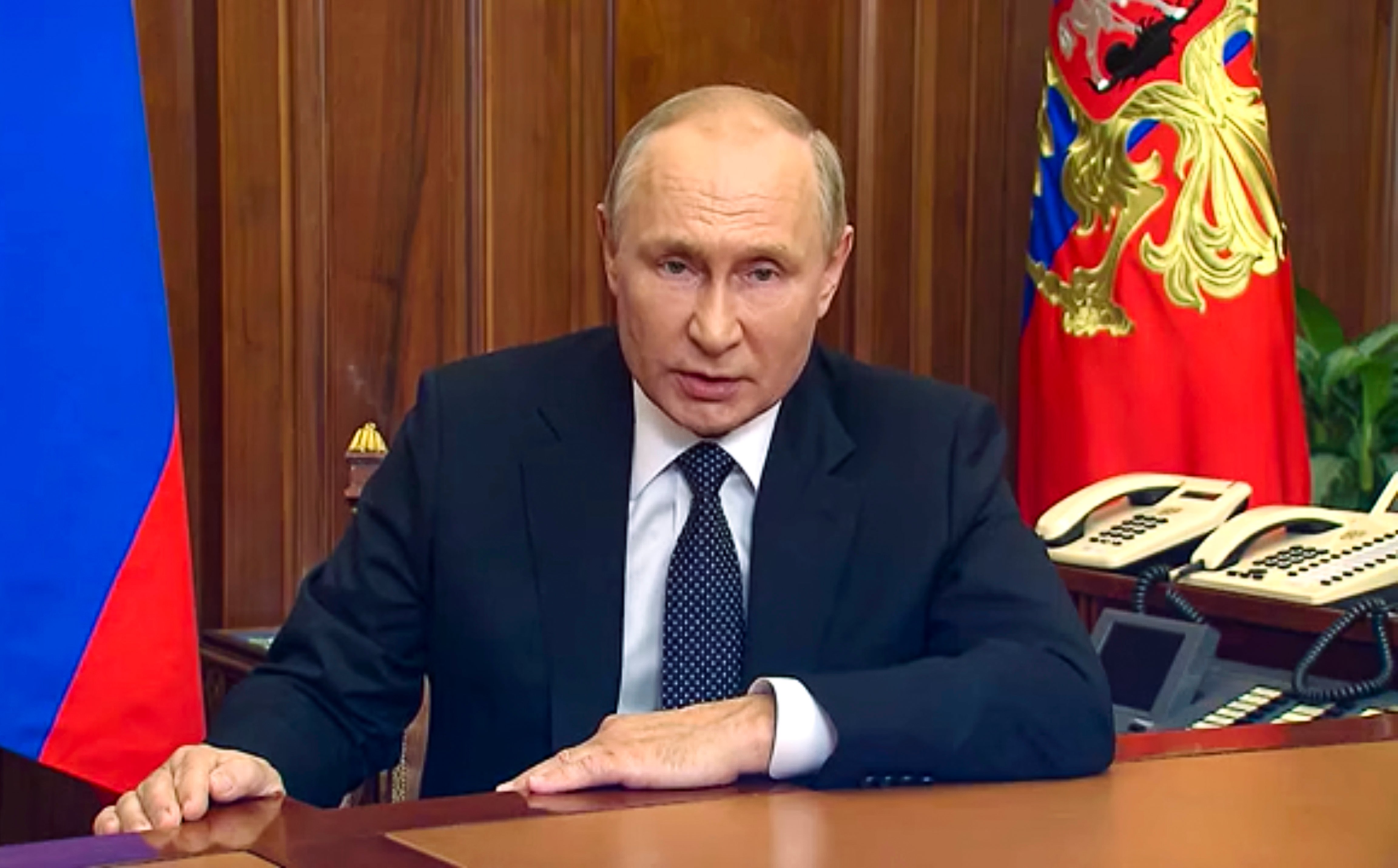Putin makes nuclear threat to West
Biden called out ‘Russian aggression’ at the UN General Assembly
In a dramatic escalation of Russia’s war in Ukraine, Vladimir Putin announced a partial mobilisation of military forces in a special address to the nation on Wednesday.
Putin said members of the military reserve, some 300,000 people, especially those with experience of active duty, would be called up, a move which comes after Moscow has faced a number of military setbacks seven months after it invaded Ukraine.
And in an apparent threat to the West, he warned against “nuclear blackmail”, threatening to respond with the might of his own vast arsenal. He said he was not bluffing over using all the means at his disposal to protect Russia’s territory, in what appeared to be a veiled reference to Russia’s nuclear capability.
“We are talking about partial mobilisation, that is, only citizens who are currently in the reserve will be subject to conscription, and above all, those who served in the armed forces have a certain military speciality and relevant experience,” Putin said.
His address alarmed many across the world and caused thousands of Russians to try and flee the country.
In a strongly-worded address to the United Nations General Assembly, US president Joe Biden said the Ukraine war was down to “one man” and accused Russia of making overt nuclear threats to Europe.
“We will stand in solidarity with Ukraine, we will stand in solidarity against Russia’s aggression,” said Biden.
He added: “This war is about extinguishing Ukraine’s right to exist as a state, and Ukrainians’ right to exist as a people... that should make your blood run cold.”
Putin’s address came a day after the Russia-controlled separatist regions in eastern and southern Ukraine announced plans to hold votes to become parts of the Russian Federation.
The referendums are expected to begin on Friday in Luhansk, Kherson and the Russia-controlled portions of the Zaporizhzhia and Donetsk regions.

Ukraine and Western leaders have said the results of the votes would not be recognised.
The president claimed his aim was to "liberate" east Ukraine's Donbas region as most people in the region did not want to be ruled by Kyiv.
It is the first time Russian conscripts have been called-up since World War Two.

Ukrainian President Volodymyr Zelensky is due to address the gathering in a pre-recorded address today. Kyiv said on Thursday morning that Russia’s move was “absolutely predictable”.
Western officials said Putin’s address was a sign of panic on the part of the Russian leader following reverses on the ground, and growing international criticism of his invasion as well as the first consistent signs of dissent at home against his war.
British Defence Secretary Ben Wallace described Putin’s mobilisation announcement as “an admission that his invasion is failing”. Dutch prime minister Mark Rutte said Putin was in a “panic”.
Germany’s vice-chancellor Robert Habeck called it “another worng and bad step”, while China called for “dialogue” on all sides.
Last sweek, Putin revealed China had “questions and concerns” about Moscow’s military operation in Ukraine. India has called on Russia to end the war.
Moscow also said on Wednesday that 5,397 Russian soldiers had been killed since the start of the conflict, its first update on casualties since the beginning of the war in February.
The US Pentagon claims up to 80,000 Russian personnel have been killed or wounded.
Moscow’s war in Ukraine has destabilised post-World War Two European security, killed thousands of civilians, caused a looming energy crisis, driven up food prices worldwide and raised fears of a nuclear catastrophe.
Join our commenting forum
Join thought-provoking conversations, follow other Independent readers and see their replies
Comments
Bookmark popover
Removed from bookmarks